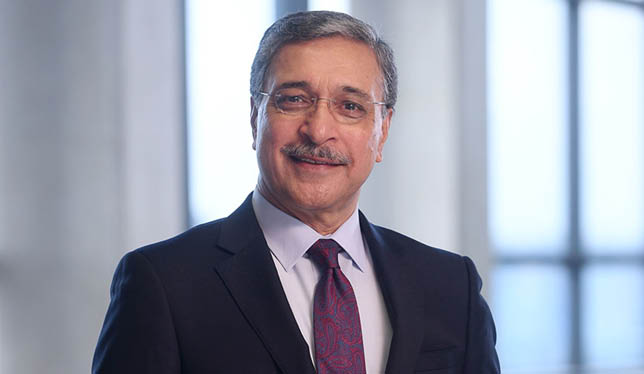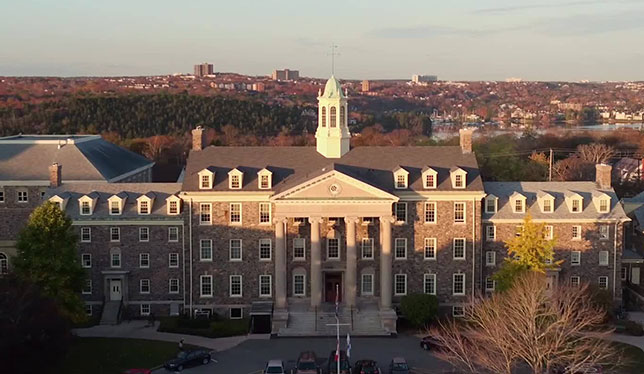Don’t take liberal democracy for granted
“Extremism is now startlingly pervasive, politically poisonous, and requires constant repudiation.”

It was a privilege to have come of age in the 1960s, when all aspirations seemed achievable. Facing the future today requires far more resilience.
Baby boomers in North America, particularly in Canada, lived through a period of enormous prosperity and peace (the gruesome war in Vietnam notwithstanding). Their parents, working-class and middle-class alike, experienced the burdens of economic depression and war, but reaped the benefits of their service and sacrifice. They secured government-guaranteed mortgages that enabled them to own homes. Tens of thousands of veterans obtained tuition free postsecondary education – the first major program of student assistance in the country’s history. And they got good, well-paying jobs in a post-war period of sustained economic growth and low unemployment.
They passed these advantages on to their children – my generation – which enjoyed even higher levels of education and professional opportunity, as well as free health care, summer travel adventures and a veritable Disney World of new consumer products.
The student protests of the 1960s seem ironic in the wake of this prosperity, and some of the youthful theatrics were eccentric and self-indulgent. But even that oppositional movement reflected the political optimism of the times. Activists demanded that liberal democracies live up to their high ideals by addressing the issues of poverty, racism, gender discrimination and educational practices that stifled rather than encouraged individual growth.
People across the political spectrum, from crusading conservatives to militant new leftists, whatever their differences, envisioned and campaigned for a better world. Political progress, driven by the liberal-democratic example, appeared not only possible but inevitable – the collapse of the Berlin Wall in 1989 being the most remarkable example. We lived in a society that we believed would simply keep improving.
But the world, we now know, does not follow a linear, progressive path and we can take almost nothing for granted, including liberty, peace or prosperity. Continuing acts of terrorism since 2001 are vicious and frightening, but are far from the only threats to liberal democracy. The economic meltdown of 2008 may have been a momentary capitalist blip or a systemic malfunction destined to be repeated. The recent authoritarianism in burgeoning democracies like Turkey and the rise of neo-fascism in Europe may be a trend or an anomaly. The indefensible silencing of controversial speakers on our own university campuses jeopardizes the culture of liberal education.
And the presidency of Donald Trump – with its hostility to a free press, its antipathy to science, evidence and honesty, its vilification of Muslims and immigrants, and its perverse politics of narrow-minded nationalism – may well imperil core liberal values that were fostered during the Enlightenment and that have served much of the world reasonably well, if imperfectly, for more than three centuries. The road to renewed progress requires that such values be vigilantly reaffirmed, if not reinvented, in the months and years ahead. Extremism in the name of various ideologies is now startlingly pervasive, politically poisonous, and requires constant repudiation.
Our schools, courts, governments and the media, as well as our business, labour and community leaders, must be at the forefront of such a movement. Individual liberty, the freedom from arbitrary authority, the full right to freedom of expression, the reduction of social and economic inequality, and the protection from religious, racial and gender-based discrimination, require not only Charter of Rights acknowledgment but sustained promotion in our public discourse.
We will always argue about the best ways to address these subjects. For some, a ban on hate speech compromises free expression, while for others it protects minority rights. Socialists and libertarians will never agree on the appropriate role of government in the economy and in our lives. What matters most is our ability to debate these issues peacefully, both inside and outside educational institutions, and to ensure the integrity of the political process through which policy choices are made. We are in deep trouble if people believe the system is broken or if we are drawn, increasingly, to those determined to break it.
Neither baby boomers nor anyone else should assume the survival and endurance of liberal democracy. So read, write, speak out and organize in defense of the values that make democratic living and political civility possible. And do so before it’s too late.
Paul Axelrod is a historian and retired York University professor. His publications include Values in Conflict: The University, the Marketplace, and the Trials of Liberal Education.
Featured Jobs
- Veterinary Medicine - Faculty Position (Large Animal Internal Medicine) University of Saskatchewan
- Psychology - Assistant Professor (Speech-Language Pathology)University of Victoria
- Canada Excellence Research Chair in Computational Social Science, AI, and Democracy (Associate or Full Professor)McGill University
- Business – Lecturer or Assistant Professor, 2-year term (Strategic Management) McMaster University
- Education - (2) Assistant or Associate Professors, Teaching Scholars (Educational Leadership)Western University















Post a comment
University Affairs moderates all comments according to the following guidelines. If approved, comments generally appear within one business day. We may republish particularly insightful remarks in our print edition or elsewhere.
2 Comments
This is a nice article that constantly emphasizes why we need to challenge ideologues of all kinds worldwide.
Excellent article! Amen.!